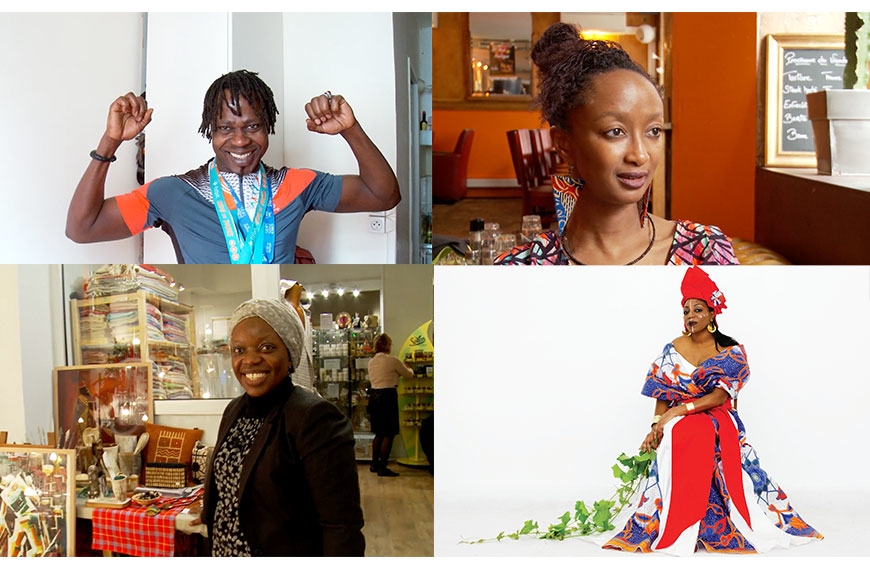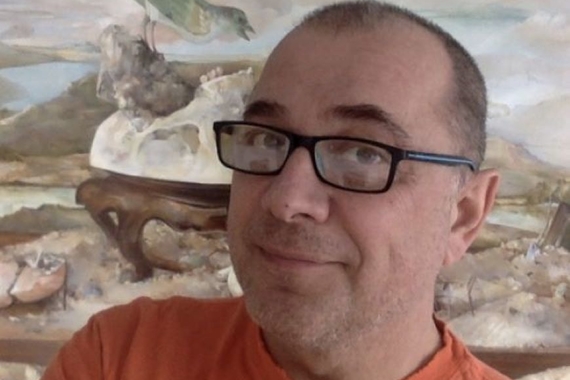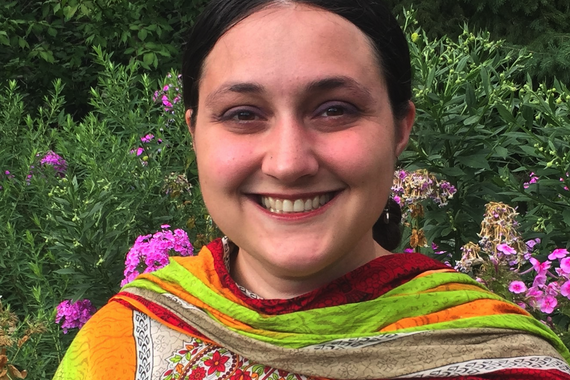African Voices of Paris
This fall, Professor Jen Bouchard of Normandale Community College and filmmaker Joanna Kohler of Kohler Productions presented a project that they began in March 2018: a series of short documentaries that reflect diverse experiences of individuals of African origin living and working in Paris. Paired with a website, these videos offer educators valuable resources they can use in the classroom to illustrate a dimension of immigrant life in France today.
The African Studies Initiative (ASI), a Title VI African Studies National Resource Center funded by the US Department of Education at the University of Minnesota, sponsored this project to help bring a new perspective on global African migrations to educators, students, and community members. Shaden M. Tageldin, director of ASI and associate professor in the Department of Cultural Studies and Comparative Literature, worked with ASI colleagues and collaborated with the Department of French & Italian and the Institute for Global Studies (IGS) to bring Bouchard and Kohler to the University of Minnesota campus for the October 31 presentation of their work.
Creating Connections within the Community
Three major components define ASI’s efforts to create an engaged, interdisciplinary platform for African studies at the University of Minnesota and beyond. These include creating a space for intellectual exchange, funding curriculum development, and promoting outreach and public engagement. In a series of workshops, ASI outreach coordinator Deborah Jane worked with faculty members at Normandale Community College to help develop and design new curriculum with African content. Jane’s longstanding efforts forged the connection to Bouchard, who is a faculty member in French and English at Normandale Community College.
In the context of past ASI-funded projects, Bouchard has created and designed other Africa-related courses, including one on Senegalese poets. She has taken what she and her colleagues at Normandale built and shared it with K-12 educators who teach African topics. For ASI, it’s important to reach out to educators and engage in their work—and to cross-pollinate Africa-focused pedagogies in local K-12 contexts, community colleges, four-year colleges, and universities. “A lot of those lessons learned come back [to the University of Minnesota] and transform the way we think about teaching and research,” says Tageldin.
It was to foster precisely such ongoing exchanges that the ASI decided to help Bouchard and Kohler undertake the African Voices of Paris project.
A New Perspective
Bouchard and Kohler have created a multi-modal curricular website for sharing the four documentaries they created. The website contextualizes the videos and gives educators a rich array of additional resources to use in the classroom. In November 2018, Bouchard presented the project to a national audience at the Annual Convention and World Languages Expo of the American Council for the Teaching of Foreign Languages (ACTFL) in New Orleans, where she reports that it was warmly received.
Tageldin explains that this documentary series, centered on the heart of Paris and on individuals of African origin who (in three of the four cases profiled) enjoy relative economic privilege and high educational and professional attainment, illustrates a dimension of immigrant life that often isn’t a part of conventional representations in France today, which typically focus on the vital struggles of more socioeconomically disadvantaged communities of North and West African origin in the banlieues: the suburbs of cities like Paris.
For example, one documentary focuses on Lucie Umukundwa, a former journalist who left Rwanda in 2006 and came to France as a refugee seeking political asylum. Umukundwa talks about the problematic assumptions people make about refugees and the underlying racism that she has experienced. Today, Umukundwa runs an art gallery in Paris that promotes East African art.
“This is an opportunity for students to understand the complex ways in which African immigrants and refugees participate in the social, political, and intellectual life of France,” explains Tageldin. “It introduces students to different facets of migration in general and to specific experiences of African immigrants in France, which then also suggest new ways that students can draw comparisons to US immigration.”
This event was co-sponsored by the Department of French & Italian and IGS. “There’s a conceptual gift that comes from working with other departments on a question of political and intellectual moment,” Tageldin says. “Collaboration brings a new accent, a new inflection to what you do, and there is a really deep resonance in that.” Tageldin describes the ASI’s collaboration with French & Italian as particularly positive and productive. “Partnerships like these are key in bringing together an intellectual community of scholars and educators for cross-disciplinary, translingual work engaging Africa and its diasporas.”
Building and Reaching Goals
For the future, ASI hopes to build on its activities over the past four years, which have focused on rethinking the sphere of African studies at large as well as on analyzing global health and geographies of disparity, exploring alternative agricultural futures, and reframing mass violence, social memory, and social justice in Africa. Through collaborations and partnerships like those formed with Normandale Community College, ASI will be able to bring new perspectives on Africa to students and educators across Minnesota and the United States.
This story was written by an undergraduate student in CLAgency. Meet the team.



